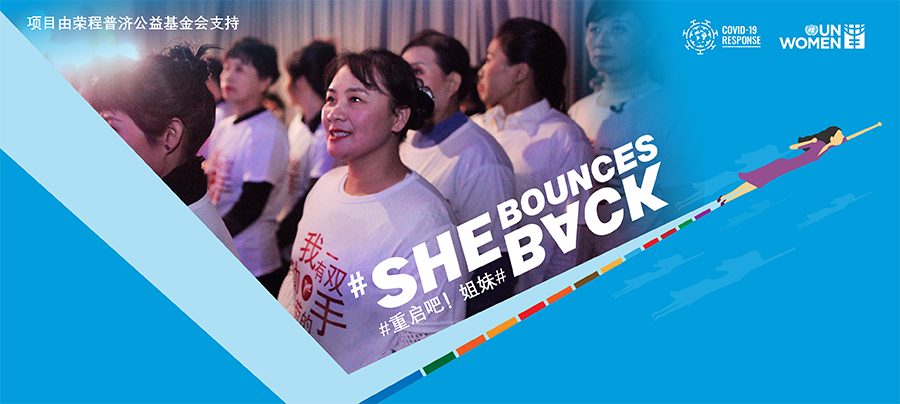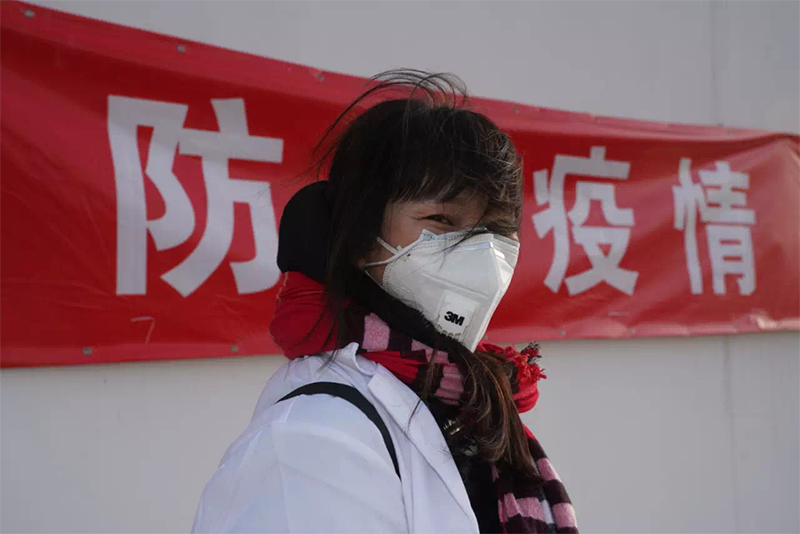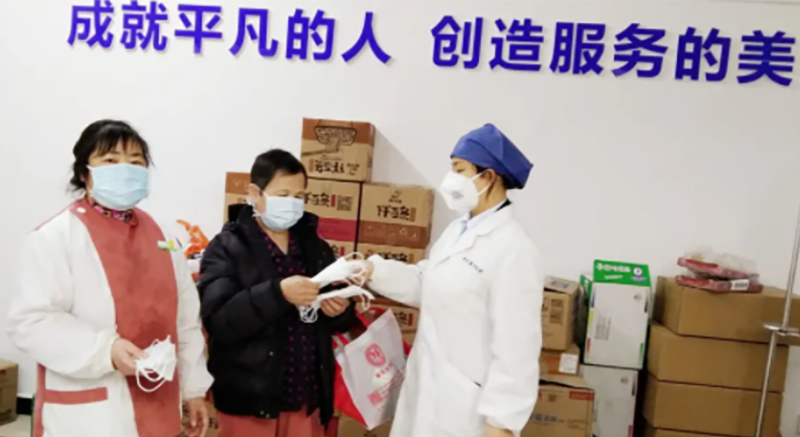
Hongyan: Raising the voices of Beijing’s domestic workers
Scattered throughout households across China are a large group of hardworking women, affectionately dubbed ‘aunties’ one on hand, and considered outsiders and employees on the other. They areChina’s domestic workers. According to the International Labour Organization, 80 per cent of the world’s 63 million domestic workers are women, and in China this figures jumps to 95 per cent. Despite the value of their labour, domestic workers face low wages and high levels of insecurity and risk. The Beijing Hongyan Community Service Center serves and advocates for this group in Beijing, and when the pandemic hit it took swift action to safeguard the welfare of their members. Their founder and director, Mei Ruo, looks back at the actions they took to keep spirits up and domestic workers firmly in the public eye.

Women domestic workers waiting to go on stage at an
arts festival held by Hongyan. Photo: Hongyan/San Jin Rou
“Hongyan is a civil society organization dedicated to grassroots working women, mainly domestic workers. Most of those we meet come from remote rural areas. They are older and less educated, and are usually struggling to survive in a sector that doesn’t offer social security or job stability.
Our organization provides them with a cozy hub called Hongyan Home where they can access drinking water, heat meals, and socialize on their rest days; they often have nowhere else to go. We organize activities to help enrich their lives and provide basic advisory services, too.
When the pandemic struck our first act was to reach out to women domestic workers in Beijing by phone and an online survey to learn how they had been affected. By February 2020 we had released the Survey report on the COVID-19 pandemic and its impact on women domestic workers in Beijing, which identify their common needs and made recommendations. Based on the report we began to provide targeted assistance to those who were stranded in Beijing during the pandemic, and later those who returned during the recovery phase.

A domestic worker stands in front of a sign that says
‘During the pandemic, the supply of domestic workers
exceeds demand.’ Photo: Hongyan/Yin Li
During the pandemic many domestic workers were quarantined in rented apartments or at their employers’ homes, with nowhere to go and nothing to do. We decided to move our activities online and provide more entertainment and socials to help them feel connected. Between February and April we held a writing contest called Quarantine and Migration, and offered writing and storytelling workshops. We not only received a huge number of interesting and touching stories, but also discovered the strong desire of our members to express themselves. To build on this, we followed up with an arts festival for domestic workers, inviting them to tell their own stories during a live stream; then we printed and published the stories. I feel that these activities not only helped improve the women’s skills, but also helped them recognize their own value and convey this to the public.
During the pandemic I think the most neglected and marginalized group of women were frontline women cleaners, who lacked protective equipment and faced a high risk of infection. Our organization started an emergency campaign and raised RMB 80,000 to purchase masks, shoe covers and other personal protective equipment, sending the supplies directly to cleaners in some Hubei hospitals, including Wuhan and Huanggang. We encouraged our members to help us, hoping that if they participated in public service activities, they might feel that people on the margins, like themselves, can also help those in need, and that empowering others can be self-empowering at the same time.

Hongyan staff and volunteers help to source
masks and other personal protective equipment
for frontline cleaners. Photo: Hongyan
Domestic workers may seem like an ‘invisible’ group, but their stories and contributions are very precious. During the pandemic and the recovery phase, although the pressure on them has increased dramatically, they are still contributing steadfastly to families, communities and broader society. They have been intensely affected by the pandemic and they are also one of the most vulnerable of all affected groups. It is our duty to protect and empower the vulnerable and leave no one behind.”
